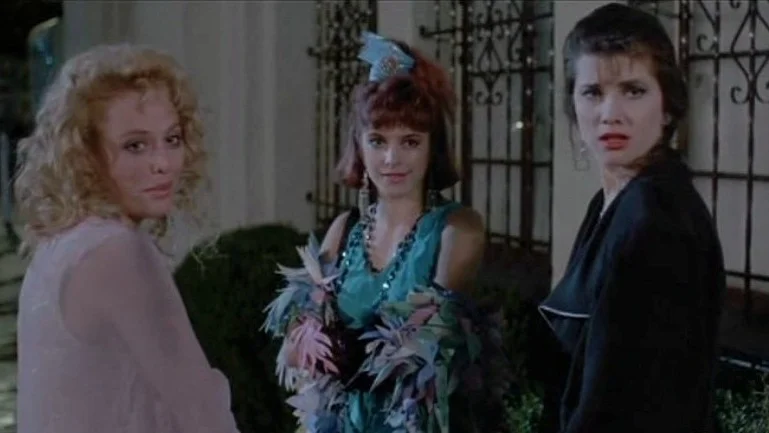Reel Pride: BPM (Beats per Minute) (2017)
The AIDS epidemic has of course been a major factor in queer cinema. The disease has wiped out generations of queer people, with little assistance from the government or medical community. The depiction of the AIDS crisis in mainstream movies is usually as a tragedy–emaciated bodies in hospital rooms hooked up to an IV, crying partners and loved ones, sickly but dignified patients. The AIDS epidemic is a worldwide tragedy and there’s nothing wrong in showing that. When done poorly, however, it looks like glamorizing the deaths of people often ignored by society. Robin Campillo’s Cesar-winning film BPM (Beats per Minute) looks at the AIDS crisis through a different lens, offering a wide portrait of the queer experience in 1990s Paris. Titled 120 battements par minute (120 Beats Per Minute) in French, the film won the Grand Prix among other awards at the Cannes Film Festival and was France’s selection for the Best Foreign Language Film Oscar.
BPM follows the Parisian chapter of ACT UP (AIDS Coalition to Unleash Power), a political activist group determined to cause actual change and progress in fighting the disease. They accomplish this by staging a number of public protests, interrupting conferences and going into the offices of pharmaceutical companies. The French government claims it intends to help fight the epidemic, but ACT UP believes that not enough is being done in this emergency. The central character is Sean (Nahuel Perez Biscayart), an HIV-positive young gay man who wants ACT UP’s protests to be more militant and radical. The group’s leaders, Sophie (Adele Haenel) and Thibault (Antoine Reinhartz), try to unify the activists’ different opinions and strategies in order to be the most effective. Sean begins a tentative romance with Nathan (Arnaud Valois), an HIV-negative new member of the group, and they share a connection as Sean’s disease worsens.
Robin Campillo’s screenplay, co-written with Phillpe Mangeot, was based on his own experiences with ACT UP during the early 1990s. The men have stated that many of the scenes were taken from real life, and the film has the feel of a docudrama, especially during the scenes where ACT UP is discussing slogans, arguing about approaches, or sharing experiences. Campillo doesn’t shy away from infighting. Rather he embraces the disagreements. The queer community was not and is not a monolith, even as the underdog in this impossible battle. The screenplay doesn’t position anyone as wrong or right, just people trying their best to effect change in the most productive way.
BPM is an angry movie. It’s angry, anarchic, radical, political, and rebellious. Campillo keeps his film sprawling and aimless, alternating between harshly lit dialogue scenes in a nondescript college classroom and dreamlike, romantic, hazy nightclub sequences with house music, moody lighting, and hazy editing. Queer cinema is more than just telling queer stories. It’s about upending the traditions of filmmaking, breaking conventions, and staking a claim for existence through sheer audacity. At over 140 minutes, BPM takes up space and forces its viewer to pay attention. Campillo and his team of editors utilize flashback and crosscutting to emphasize the film as a tapestry, rather a straight narrative.
What makes BPM so unforgettable is that it embraces the idea that queer life is inherently a protest against cisheteronormativity and the patriarchy. Whether the activists are staging a demonstration, dancing in a nightclub, making love, or just sitting on a bus, their lives are a rebuke of the systems that oppress and dismiss them. Love, sex, dancing, and friendship are their own protests against this disease that is taking so much away from them. As interesting as the political discussions are, the more intimate moments are just as thrilling. Campillo lets his characters be human beings with beating hearts, and they expose their vulnerabilities and fears. The gay men in this film are sexual too, and it feels brave to see HIV-positive men navigating sexual encounters. While many movies withdraw from sex between men, BPM’s frank eroticism is its own act of courage.
The hushed, charged romance between Sean and Nathan takes over the film, as Sean’s prognosis worsens. Some critics have mentioned that the film leans into melodrama during this portion, and somewhat abandons the activist docudrama style. While that’s true, I think it’s important to show the human element of AIDS. The film does not hide from what the disease does to the body and the spirit. The muted dialogue, the intimate close-ups, the subdued lighting all create this space where these men don’t have to conceal themselves. BPM shows not just the fight against AIDS, but the actual human cost of it without holding back. Some of the most powerful moments in the film come from the latter third, building up to a hypnotic and stunning finale.
BPM is such a significant movie, and one that really stuck with me. From the magnificent filmmaking to the heartbreaking performances (especially from the four leads Biscayart, Valois, Haenel, and Reinhartz), it really captures the revolutionary spirit of queerness. I do wish the film included more people of color and non-binary/trans people, but then I wonder if these spaces were as inclusive as they’d be now over two decades later. Campillo’s film is an achievement, and a vital document of queer history. The HIV epidemic is sadly still very much a part of our lives, and this film will be relevant and urgent as time goes on.














